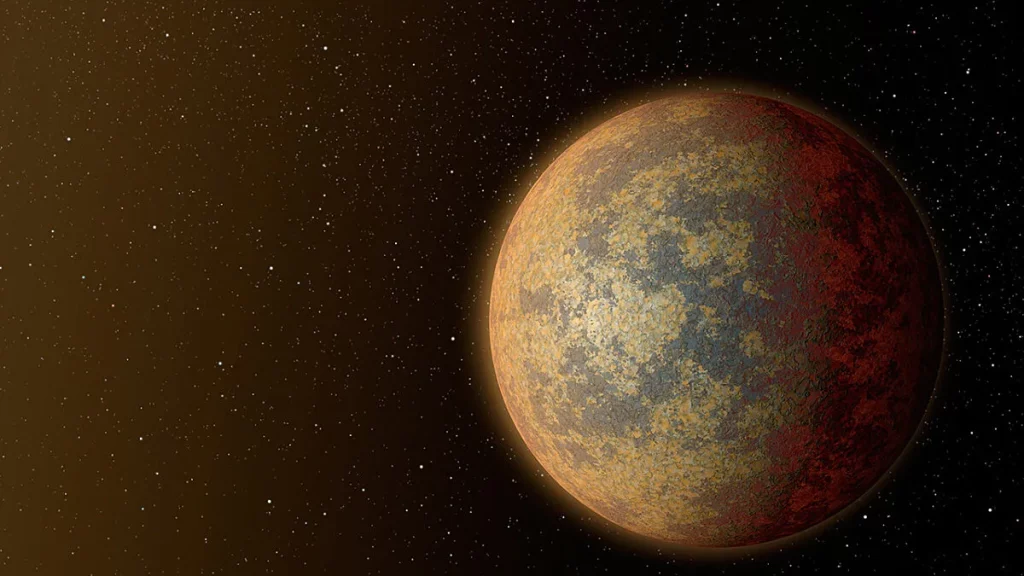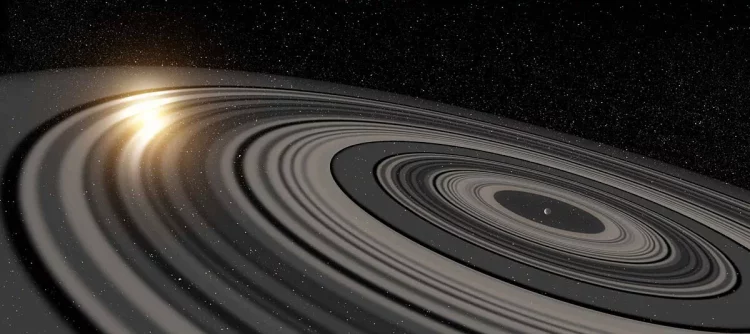Introduction
In the vast expanse of the universe, exoplanets—planets orbiting stars outside our solar system—represent a frontier of discovery that challenges our understanding of planetary science. As our observational techniques and technologies advance, astronomers have identified a diverse array of exoplanets with extraordinary and extreme characteristics. This article explores some of the most remarkable exoplanets discovered to date, categorized by their superlative attributes, and examines their implications for our understanding of planetary systems.
The Discovery of Exoplanets
The discovery of exoplanets marks one of the most significant achievements in modern astronomy. Although the concept of exoplanets has been theorized for centuries, concrete evidence only emerged in the 1990s.
- Early Theoretical Work: The notion of planets orbiting stars other than the Sun has long intrigued scientists. Theoretical models proposed by astronomers like Johann Kepler and Isaac Newton laid the groundwork for understanding planetary systems beyond our own.
- First Exoplanet Discoveries: The first confirmed discovery of an exoplanet occurred in 1995 when Michel Mayor and Didier Queloz identified a planet orbiting the star 51 Pegasi. This groundbreaking discovery was achieved using the radial velocity method, which detects the gravitational influence of a planet on its host star.
- Advancements in Detection Methods: Since then, a variety of methods have been developed to detect exoplanets, including the transit method, direct imaging, and gravitational microlensing. These techniques have significantly expanded our ability to find and characterize exoplanets.
Superlative Exoplanets: Categories and Examples
Exoplanets come in many shapes and sizes, and some possess extreme properties that set them apart from typical planetary models. Here, we explore several categories of superlative exoplanets, each exemplifying unique attributes.
1. The Hottest Exoplanets
Exoplanets with extreme temperatures often orbit very close to their host stars, resulting in scorching conditions.
- KELT-9b: KELT-9b is one of the hottest exoplanets known, with temperatures reaching up to 4,300 degrees Celsius (7,800 degrees Fahrenheit). This extreme heat is due to its proximity to its host star, KELT-9, a hot A-type star. The high temperatures result in a significant amount of thermal radiation, making KELT-9b a subject of interest for studying atmospheric chemistry under intense heat.
- HD 189733b: Known for its deep blue color, HD 189733b has an atmospheric temperature of around 1,000 degrees Celsius (1,832 degrees Fahrenheit). This planet experiences fierce winds and high-speed atmospheric storms, contributing to its striking appearance and extreme weather conditions.
2. The Coldest Exoplanets
On the opposite end of the spectrum, some exoplanets have extremely low temperatures, often found in distant orbits around their stars.
- OGLE-2016-BLG-1190Lb: This exoplanet, discovered through gravitational microlensing, is considered one of the coldest known exoplanets. It orbits far from its host star, resulting in a frigid environment with temperatures possibly plunging below -200 degrees Celsius (-328 degrees Fahrenheit).
- Fomalhaut b: Orbiting the star Fomalhaut, this exoplanet is situated in the outer reaches of its planetary system. Its distance from its star leads to cold temperatures, making it a candidate for studying the properties of distant, icy worlds.
3. The Largest Exoplanets
Some exoplanets are notable for their enormous size, often much larger than Jupiter, the largest planet in our solar system.
- HD 100546 b: This exoplanet is one of the largest discovered, with a radius that is more than 1.8 times that of Jupiter. Its immense size suggests that it has a substantial atmosphere, providing insights into the formation and structure of giant planets.
- WASP-12b: WASP-12b is an example of a “hot Jupiter” with a radius about 1.8 times that of Jupiter. Its close orbit to its host star leads to extreme atmospheric heating and significant expansion, offering a unique perspective on the dynamics of large exoplanets.

4. The Smallest Exoplanets
On the smaller end of the scale, exoplanets with sizes comparable to or smaller than Earth offer valuable information about rocky planets and their potential habitability.
- Kepler-37b: Kepler-37b is one of the smallest exoplanets discovered, with a size similar to that of the Moon. Its small size and rocky composition make it a key target for studying the characteristics of Earth-sized exoplanets.
- LHS 1140 b: This exoplanet is slightly larger than Earth but smaller than many other known exoplanets. It is a candidate for studying the atmospheric properties of smaller, rocky planets and assessing their potential for habitability.
5. The Most Eccentric Orbits
Some exoplanets have highly eccentric orbits, deviating significantly from a circular path. These extreme orbital characteristics provide insights into the dynamic processes influencing planetary systems.
- HD 80606 b: Known for its highly elliptical orbit, HD 80606 b experiences dramatic temperature changes as it moves from its perihelion (closest approach to its star) to aphelion (farthest point). This extreme eccentricity results in significant atmospheric fluctuations and temperature variations.
- XO-3b: XO-3b is another exoplanet with a highly elliptical orbit. Its orbital path causes dramatic changes in temperature and atmospheric conditions, offering valuable data on the effects of eccentricity on planetary climates.
6. The Most Distant Exoplanets
Exoplanets located far from their host stars provide insights into the outer regions of planetary systems and the potential for distant, icy worlds.
- HAT-P-13b: This exoplanet orbits its host star at a significant distance, making it one of the most distant known exoplanets. Studying such distant worlds helps astronomers understand the distribution and characteristics of planets in the outer regions of planetary systems.
- HR 8799 c: Part of a multiple planet system, HR 8799 c is located far from its host star, providing insights into the formation and evolution of distant exoplanets. Its separation from the star allows for detailed study of its atmospheric composition and orbital dynamics.
Implications for Astrobiology and Future Research
The study of superlative exoplanets has profound implications for astrobiology and the search for extraterrestrial life. Understanding the diverse range of exoplanets helps scientists assess the conditions required for life and refine models of planetary habitability.
- Habitability Assessments: By studying the extremes of planetary environments, scientists can better understand the range of conditions under which life might exist. Research into exoplanets with extreme temperatures, atmospheric compositions, and orbital characteristics informs models of habitability and the potential for life beyond Earth.
- Atmospheric Chemistry: Investigations into the atmospheres of exoplanets with extreme conditions provide valuable insights into atmospheric chemistry and dynamics. Analyzing atmospheric compositions and weather patterns helps scientists understand the processes that shape planetary climates.
- Planetary Formation: The diversity of exoplanets offers clues about planetary formation and evolution. Studying planets with unusual sizes, orbits, and compositions helps refine models of how planetary systems develop and the factors influencing their structure.
- Technological Advancements: The study of exoplanets drives advancements in observational technologies and techniques. Innovations in telescope design, data analysis, and detection methods enhance our ability to explore and characterize distant worlds.
Challenges and Future Directions
Despite significant progress, studying exoplanets presents several challenges that researchers continue to address.
- Detection Limitations: Detecting and characterizing exoplanets, especially those located far from their host stars or with extreme properties, remains challenging. Advancements in observational techniques and instruments are necessary to overcome these limitations.
- Data Analysis: Analyzing the vast amount of data collected from exoplanet observations requires sophisticated algorithms and computational tools. Continued development in data processing and analysis is essential for extracting meaningful insights from observational data.
- Understanding Extreme Conditions: Researching exoplanets with extreme conditions requires a comprehensive understanding of how such environments impact planetary characteristics. Continued exploration and modeling are necessary to fully grasp the implications of these extreme environments.
Conclusion
The exploration of superlative exoplanets represents a remarkable achievement in our quest to understand the diversity of planetary systems beyond our solar system. From the hottest and coldest worlds to the largest and smallest planets, each exoplanet offers unique insights into the complexities of planetary science.
As our observational capabilities continue to advance, the study of exoplanets will provide valuable information about the formation, composition, and potential habitability of distant worlds. The discoveries made through the exploration of superlative exoplanets will undoubtedly shape our understanding of the universe and our place within it.
Through continued research and technological innovation, scientists will unravel the mysteries of these extraordinary worlds, offering new perspectives on the nature of planets and the possibilities for life beyond Earth.











































Discussion about this post